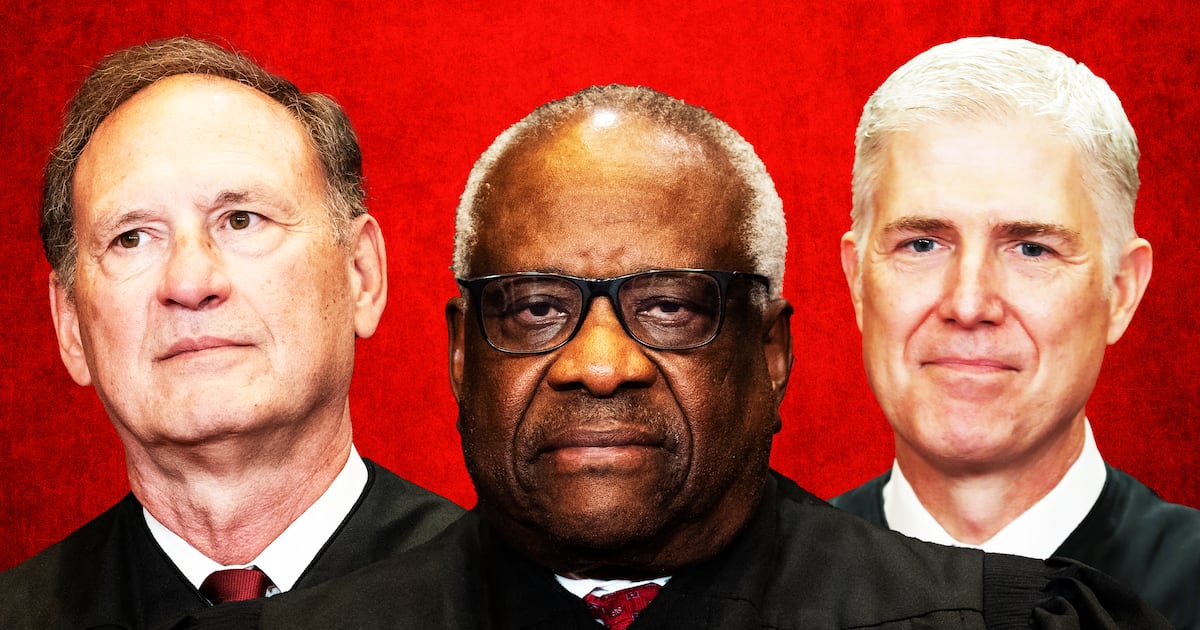- cross-posted to:
- housing_bubble_2@lemmy.world
- cross-posted to:
- housing_bubble_2@lemmy.world
The United States Supreme Court revealed what some justices touted as a landmark new ethics code last year.
But critics noted that the scandal-plagued institution’s new rules lacked any enforcement mechanisms, making them essentially a 14-page long list of suggestions.
A new leak of secret discussions from behind the bench, published in The New York Times Tuesday, reveals which justices fought to keep the code of conduct toothless.
The Times reported that the court’s nine justices started passing ultra-confidential memos, kept in paper envelopes and off email servers, back and forth at the end of last summer.



Yeah, people can be entirely earnest and sincere and still be awful people. A terrible person doesn’t have to be based in a self-serving/opportunistic mindset. They can just have backwards beliefs that result in destructive ideas and actions even while being technically principled and upstanding in terms of the ethics of their role and the law.
The way I explained it as a science major who went to undergrad at a very conservative Christian college is “If you start from a flawed premise, you can use valid logic to get to very flawed conclusions without making any mistakes.”
Religious conservatives are starting from a flawed premise (edit: that premise being the existence of a just, omnipotent, omniscient deity) and either imposing biblical law or libertarianism is the logical outcome of that flawed premise.
As an aside, this is my biggest problem with religion in general. I’m all for “live and let live,” but the logical outcome of believing that your sect has a monopoly on capital-T “Truth” is to spread that “truth” to others by any means necessary for their own good. Most religions, especially Abrahamic monotheism, do not logically allow for pluralism, and the paradox of tolerance means that if we tolerate intolerant religion, eventually that religion will control everything.
They also are welcome to whatever beliefs they have.
The flaw is ignoring the separation of church and state, the lack of an official religion, the intentional non-religious start of the founders, the judicial history of protection of beliefs
Yes, they are entitled to and have a right to any beliefs they want. However, my whole point is that “Separation of church and state” and the lack of an official state religion are antithetical to fundamentalist Christianity, or any Christianity on some level. Christians believe that “the laws of God” supersede the “laws of man,” so they won’t let a pesky little thing like the Constitution get between them and legislating their beliefs.
And their right, if you start from the assumption that Christianity is true. Why wouldn’t you want to spread the word of God and minimize sin? After all, that’s what they are called to do in the New Testament! Why wouldn’t they protect others from themselves by outlawing everything with which their religion disagrees?
To me, that is one of the central problems with tolerating discussion of Christianity and Christian values in a political space (or any religion that claims to have a monopoly on objective truth)
Lawful Evil vs Neutral Evil vs Chaotic Evil
Lawful Evil that THINKS they are Lawful Good
For the most part I’d say so. Then there’s the portion that fall into “extreme malicious compliance”
For “extreme malicious compliance,” I’d say there’s also Lawful Chaotic: following the letter of the law to cause chaos.
Which implies the existence of Chaotic Lawful: upholding the spirit of the law with little to no regard for the letter of the law.